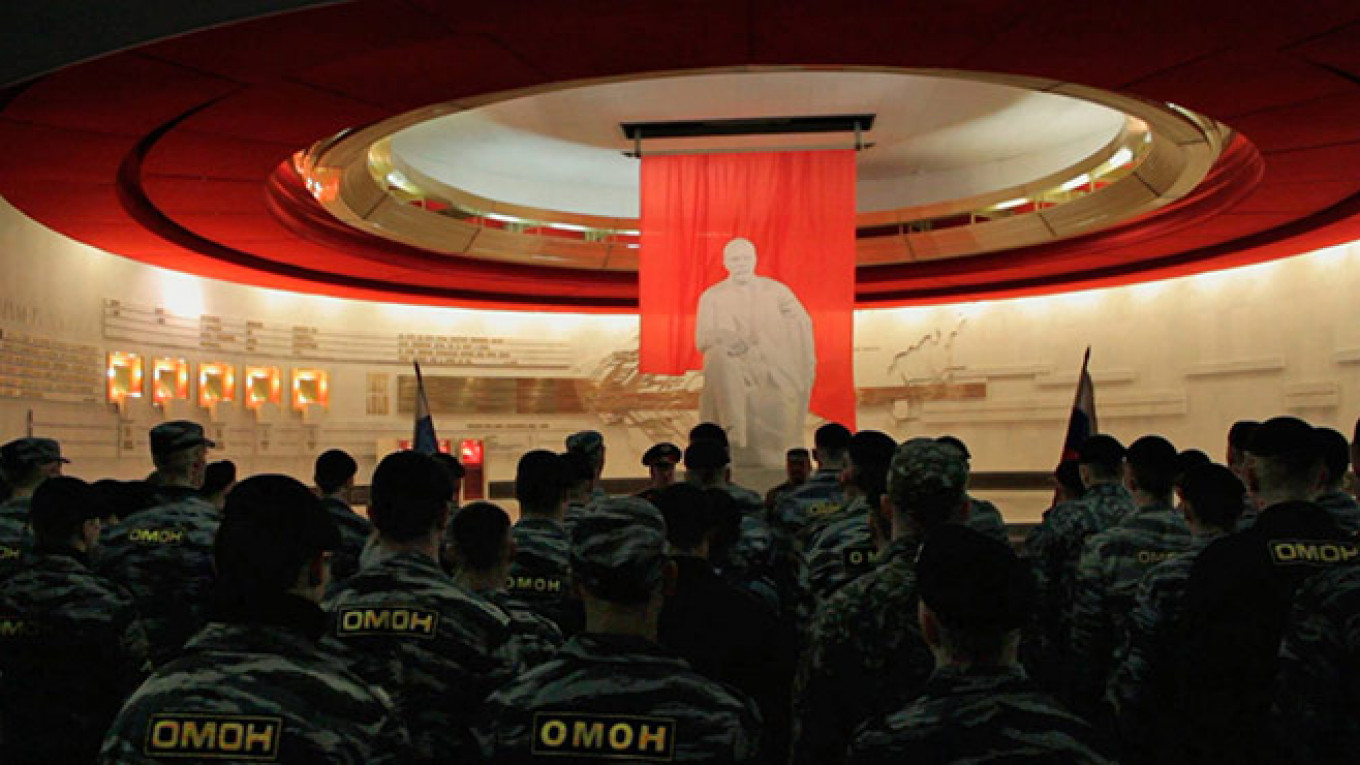The 25th anniversary of the Russian Federation has not only been a cause for celebration in the motherland, but also an opportunity for internal perspectives on life in Russia to extend abroad.
"The Revolution that wasn't — Russian Documentaries 1991-2015," was a retrospective imagined to bridge this gap between the internal and external representations of Russia. Organized and curated by Tatyana Kirianova, the program ran at Arsenal Kino, a venue in the heart of Berlin, this April.
The project included 21 documentaries providing a rich and textured background to Russia's history and culture. Many of the films sought to represent an alternative chronicle of the country's recent societal and political transitions.
The comprehensive program featured the best of independent Russian documentary cinema. Filmmakers included internationally acclaimed Alexander Sokurov, Sergei Dvortsevoy and Sergei Loznitsa, together with independent directors such as Pavel Kostomarov, Olga Privolnova and Alina Rudnitskaya.
The retrospective was divided into three categories, each of them focused on a different aspect of Russia: life in Russian provinces, recent political changes and the Soviet past. "I had this idea [for the project] a couple of years ago when I was working as a cinema journalist. After I had been to numerous film festivals where I watched many interesting Russian documentaries, I realized that in the last fve years or more there hadn't been an event like "The Revolution that wasn't — Russian Documentaries 1991-2015" in Berlin," said Kirianova in an interview with The Moscow Times.
After reviewing a large number of documentaries, she decided to present authentic films focused on humanity, and more specifically, on people in Russia. "Russian politics is really present in the German media," she told The Moscow Times, "but people want to know more than what is reported. They are interested in what it is going on in the country, but they also want to know more about the country's history, about life in the Soviet Union and about what was going on behind demonstrations."
Documentaries such as "Leninland," "Pervye na Lune," "Revolutsiya, Kotoroi ne Bylo," "Mat," and "Devochki" explored varied and unique topics — the biggest museum dedicated to Soviet forefather Vladimir Lenin in the Perestroika era, the first manned mission to the moon by Soviet cosmonauts, a glance inside the far-left National Bolshevik Party under the leadership of Eduard Limonov, the story of a single mother in a village in Novgorod Oblast and a summer in the life of three Muscovite girls on the cusp of adulthood.
Kirianova emphasized that the program's audience was not solely comprised of Berlin's Russian community. Seventy percent of viewers were either German or non-Russian foreigners. A high proportion of viewers were also young people, indicating the appetite for Russian culture and film across audiences and nationalities. The good news is that Berlin may not have to wait too long for its next dose of Russian documentaries — plans are already afoot for a similar program to run in 2017.
For more information about "The Revolution that wasn't — Russian Documentaries 1991-2015" see arsenal-berlin.de.
Contact the author at artsreporter@imedia.ru
A Message from The Moscow Times:
Dear readers,
We are facing unprecedented challenges. Russia's Prosecutor General's Office has designated The Moscow Times as an "undesirable" organization, criminalizing our work and putting our staff at risk of prosecution. This follows our earlier unjust labeling as a "foreign agent."
These actions are direct attempts to silence independent journalism in Russia. The authorities claim our work "discredits the decisions of the Russian leadership." We see things differently: we strive to provide accurate, unbiased reporting on Russia.
We, the journalists of The Moscow Times, refuse to be silenced. But to continue our work, we need your help.
Your support, no matter how small, makes a world of difference. If you can, please support us monthly starting from just $2. It's quick to set up, and every contribution makes a significant impact.
By supporting The Moscow Times, you're defending open, independent journalism in the face of repression. Thank you for standing with us.
Remind me later.






